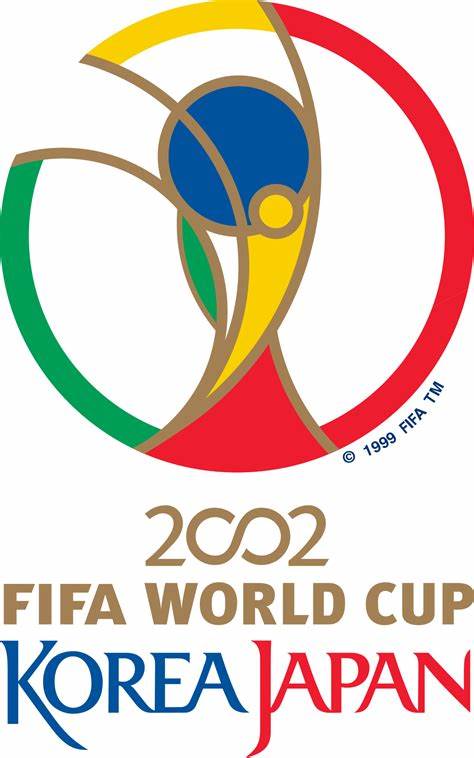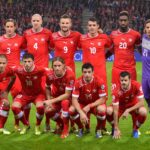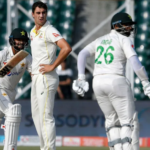Introduction to the 2002 FIFA World Cup
Welcome, football fans, to a celebration of one of the most exhilarating and unforgettable tournaments in sporting history – the 2002 FIFA World Cup! Held in South Korea and Japan, this tournament captivated hearts around the globe with its thrilling matches, iconic moments, and extraordinary displays of skill. So sit back, relax, and join us as we take a journey through time to explore the highlights that made the 2002 World Cup an experience like no other. From shocking upsets to controversial calls, from awe-inspiring goals to heart-stopping drama – prepare yourself for a trip down memory lane filled with passion and glory. Let’s dive into the action-packed adventure that was the 2002 FIFA World Cup!
Host Nation and Venues
The 2002 FIFA World Cup was a momentous event held in South Korea and Japan, making it the first World Cup to be co-hosted by two nations. Both countries were eager to showcase their rich culture and love for the beautiful game. The tournament took place in various cities across the two nations, with each venue leaving an indelible mark on the competition.
In South Korea, matches were held in iconic stadiums such as Seoul World Cup Stadium and Busan Asiad Main Stadium. These state-of-the-art venues provided a vibrant atmosphere that electrified fans from all over the world. In Japan, football enthusiasts flocked to incredible arenas like Saitama Stadium and Yokohama International Stadium, where some of the most thrilling moments of the tournament unfolded.
These venues not only served as battlegrounds for intense matches but also allowed spectators to experience firsthand the unique blend of traditional Asian hospitality and modern infrastructure. From bustling metropolises to serene coastal towns, each location offered its own distinct charm.
Whether it was witnessing Brazil’s mesmerizing skills at Suwon World Cup Stadium or feeling the energy pulsate through Shizuoka Ecopa Stadium during epic encounters between Italy and South Korea, every host city left an unforgettable impression on players and fans alike.
By hosting this global spectacle together, South Korea and Japan demonstrated their ability to come together as one united front despite historical tensions. The success of these two nations in organizing such a monumental event set new standards for future World Cups – showcasing how football can bridge divides and unite people from diverse backgrounds.
With breathtaking landscapes serving as backdrops for exhilarating matches, combined with warm hospitality from both host nations’ citizens, it is no wonder that memories of the 2002 FIFA World Cup continue to resonate with football lovers around the world even after almost two decades.
2002 FIFA World Cup
| 2002 FIFA 월드컵 한국/일본 (Korean) 2002 FIFA Woldeu Keop Hanguk/Ilbon 2002 FIFAワールドカップ 韓国/日本 (Japanese) 2002 FIFA Waarudo Kappu Kankoku/Nippon |
|
|---|---|
| Tournament details | |
| Host countries | South Korea Japan |
| Dates | 31 May – 30 June |
| Teams | 32 (from 5 confederations) |
| Venue(s) | 20 (in 20 host cities) |
| Final positions | |
| Champions | Brazil (5th title) |
| Runners-up | Germany |
| Third place | Turkey |
| Fourth place | South Korea |
| Tournament statistics | |
| Matches played | 64 |
| Goals scored | 161 (2.52 per match) |
| Attendance | 2,705,198 (42,269 per match) |
| Top scorer(s) | Ronaldo (8 goals) |
| Best player(s) | Oliver Kahn |
| Best young player | Landon Donovan |
| Best goalkeeper | Oliver Kahn |
| Fair play award | Belgium |
Team Lineups and Key Players
The 2002 FIFA World Cup brought together some of the most talented footballers from around the globe. Each team showcased their unique lineups, with star players leading the charge for glory.
Brazil, led by coach Luiz Felipe Scolari, boasted an impressive lineup that included legendary players like Ronaldo, Rivaldo, and Ronaldinho. Their attacking prowess was unmatched as they tore through defenses with their skillful dribbling and clinical finishing.
Germany also fielded a strong team with Oliver Kahn guarding the goal and Michael Ballack commanding the midfield. Their physicality and tactical discipline made them a formidable opponent throughout the tournament.
France relied on a mix of experience and youthful talent. Zinedine Zidane’s elegant playmaking skills mesmerized spectators while Thierry Henry’s lightning-fast pace terrorized defenders.
Argentina showcased Juan Roman Riquelme’s creative genius in midfield along with Gabriel Batistuta’s lethal striking abilities upfront. The duo formed a deadly partnership that kept fans on their feet.
Italy possessed solid defensive capabilities thanks to Alessandro Nesta and Fabio Cannavaro at center-back. Francesco Totti provided creativity in attack while Christian Vieri posed a constant threat in front of goal.
These are just glimpses of the many remarkable players who graced the pitch during this unforgettable tournament. Stay tuned for more highlights from the 2002 FIFA World Cup!
Group Stage Highlights
The group stage of the 2002 FIFA World Cup was a rollercoaster ride filled with surprises, upsets, and incredible displays of skill. From the very beginning, it was clear that this tournament would be one for the history books.
In Group A, host nation South Korea made an impressive showing by defeating Poland and Portugal to secure their spot in the knockout rounds. Their passionate fans created an electric atmosphere in every match, cheering on their team with unwavering enthusiasm.
Group B saw Spain struggle to find their rhythm while Paraguay surprised everyone by finishing at the top of the group. The highlight of this group was undoubtedly Senegal’s victory over France – a result that sent shockwaves through the football world.
Over in Group C, Brazil showcased their formidable talent and emerged as favorites to win it all. With Ronaldo leading the charge, they dominated every opponent they faced and secured maximum points without breaking a sweat.
Group D proved to be fiercely competitive as Italy battled it out against Croatia and Mexico for a place in the next round. In one memorable clash between Italy and Mexico, Francesco Totti sealed victory with a last-minute penalty kick – leaving fans on edge until the final whistle blew.
As we moved into Group E, Germany showed why they are perennial contenders in international tournaments. Led by Oliver Kahn’s exceptional goalkeeping skills, they steamrolled through Saudi Arabia and Republic of Ireland to claim first place without conceding a single goal.
In Group F, Argentina dazzled spectators with breathtaking attacking play led by Juan Roman Riquelme and Gabriel Batistuta. They finished atop their group after thrilling victories over Nigeria and England – setting themselves up for what looked like a promising run in later stages.
Group G witnessed an intense battle between Mexico and Italy for supremacy. Both teams displayed flashes of brilliance but ultimately settled for second place after being outshone by eventual winners Brazil.
Knockout Round Drama
The knockout round of the 2002 FIFA World Cup was a rollercoaster of emotions, filled with intense drama and nail-biting moments. As teams battled it out for a spot in the quarterfinals, there were surprises, upsets, and heartbreaks that left fans on the edge of their seats.
One of the standout matches was between Senegal and Sweden. In a tense encounter, Senegal’s Papa Bouba Diop scored the only goal of the game, securing his team’s place in the quarter-finals. It was a historic moment as Senegal became the first African nation to reach this stage in a World Cup tournament.
Another memorable match was Brazil versus England. The two footballing giants clashed in an epic showdown that went into extra time. With both teams giving it their all, it seemed like penalties would decide their fate. But then Ronaldinho stepped up and delivered an audacious free-kick from distance that sailed over England’s goalkeeper David Seaman’s head – sending Brazil through to the next round.
Germany also had its fair share of drama when they faced off against Paraguay. The match remained goalless until Oliver Neuville broke the deadlock in injury time with a powerful strike that sent Germany into celebrations while leaving Paraguay devastated.
These are just some examples of how unpredictable and thrilling knockout rounds can be during any World Cup tournament – especially during 2002 when we witnessed countless breathtaking moments.
The Iconic Final Match
The culmination of the 2002 FIFA World Cup was a clash between two football powerhouses: Brazil and Germany. This much-anticipated final took place on June 30, 2002, at the International Stadium in Yokohama, Japan. The atmosphere was electric as fans from both nations filled the stadium with their chants and cheers.
From the very beginning, it was evident that this match would be one for the history books. Ronaldo, who had been an instrumental player throughout the tournament for Brazil, opened the scoring just minutes into the game. His clinical finish sent waves of jubilation through Brazilian supporters.
Germany fought back valiantly but struggled to break down Brazil’s formidable defense led by Lucio and Roberto Carlos. As time went on, Ronaldo struck again to seal his place as a true legend of Brazilian football. With this goal, he became not only the top scorer of the tournament but also secured a historic fifth World Cup title for Brazil.
The scenes that followed were pure ecstasy as players embraced each other and tears flowed freely among supporters. It was a moment that will forever be etched in football history—a testament to both teams’ skill and determination throughout the tournament.
This iconic final match showcased what makes football so special—the ability to unite people from all walks of life in celebration or heartbreak. It symbolized passion beyond borders and reminded us why we love this beautiful game.
Legacy of the 2002 World Cup
The impact of the 2002 FIFA World Cup is still felt to this day. It left a lasting legacy that transcends football and resonates with fans all over the world.
One of the most significant legacies of this tournament was how it showcased Asian football on a global stage. South Korea and Japan jointly hosted the World Cup, marking the first time it was held in Asia. This event not only boosted tourism and infrastructure development but also served as a catalyst for further growth and investment in football across the continent.
Moreover, this World Cup introduced new tactical approaches to the game. The success of teams like Brazil, who employed an attacking style known as “samba soccer,” inspired many coaches and players to adopt more offensive strategies.
The tournament also gave rise to several breakout stars who went on to have illustrious careers. Ronaldo Nazario’s dominant performance earned him both the Golden Boot and Player of the Tournament awards. Young talents like Ronaldinho, Oliver Kahn, and Park Ji-sung emerged as stars in their own right during this World Cup.
Additionally, technological advancements made during this tournament had a lasting impact on future competitions. For example, goal-line technology was introduced for accurate decisions regarding goals scored or not scored.
Finally yet importantly, hosting such a prestigious event brought communities together by fostering cultural exchange among nations. Fans from different countries united under one roof, celebrating their love for football while immersing themselves in diverse cultures.
The 2002 FIFA World Cup left an indelible mark on history through its influence on Asian football development, strategic innovations within gameplay tactics, the emergence of superstar talent, technological advancements, and fostering cultural unity.
Fan Experiences and Cultural Impact
The 2002 FIFA World Cup was not just a tournament for football enthusiasts; it was an unforgettable experience for fans from all walks of life. The cultural impact of the event resonated far beyond the stadiums, leaving an indelible mark on both the host nation and visitors alike.
Fans from around the world flocked to South Korea and Japan to soak up the electric atmosphere. They were greeted with warm hospitality, vibrant street celebrations, and a sense of unity that transcended language barriers. This global gathering fostered friendships among strangers who shared a common passion for the beautiful game.
Local traditions were interwoven with international customs as fans embraced each other’s cultures. From sharing food at street vendors to learning new chants in foreign languages, this melting pot of cultures created an unparalleled sense of camaraderie among supporters.
The World Cup also provided an opportunity for countries to showcase their unique heritage through art, music, and dance performances during halftime shows and fan zones. Traditional outfits adorned the stands as spectators proudly displayed their national colors.
Beyond these festive moments, however, there were deeper societal impacts. The influx of tourists injected significant economic growth into local communities – boosting businesses such as hotels, restaurants, and souvenir shops. Additionally, infrastructural developments made in preparation for the tournament left lasting legacies that benefited residents long after its conclusion.
But perhaps most importantly were how this event united people on a human level. In an era before social media dominated our lives – where connections often remain digital – this World Cup brought individuals together physically to share joyous moments side by side.
No words can truly capture what it felt like being part of those electrifying crowds or experiencing firsthand how different nations came together under one sporting spectacle. It was a celebration that etched itself into memories forever – reminding us all that despite our differences; we are united by our love for football.
Unforgettable Moments: Upsets, Controversies, and Memorable Goals
The 2002 FIFA World Cup was filled with unforgettable moments that left fans on the edge of their seats. From stunning upsets to controversial decisions, this tournament had it all. One of the most memorable upsets came in the group stage when Senegal defeated defending champions France. It was a shocking result that sent shockwaves throughout the football world.
Controversies also played a significant role in shaping the narrative of this World Cup. The quarter-final match between South Korea and Italy will forever be remembered for its controversial refereeing decisions. Ahn Jung-hwan’s golden goal in extra time secured a historic victory for South Korea but left Italian fans feeling aggrieved.
Of course, no discussion about the 2002 World Cup would be complete without mentioning some truly memorable goals. Ronaldo’s brace against Germany in the final showcased his brilliance and helped Brazil secure their fifth title. Another standout moment was Ronaldinho’s incredible lob from distance against England in the quarter-finals – a goal that has been replayed countless times over since then.
These unforgettable moments are what make each World Cup special and unique. They create lasting memories for both players and fans alike, reminding us why we love this beautiful game so much.
So let us cherish these moments – both thrilling and controversial – as they have become an integral part of football history. Whether you were fortunate enough to witness them firsthand or have only heard stories passed down through generations, these moments will continue to inspire future generations of players and remind us why we remain captivated by the magic of the World Cup year after year.
Conclusion: Why the 2002 World Cup will always hold
The 2002 FIFA World Cup was a tournament that will forever be etched in football history. From the electrifying matches to the unforgettable moments, this edition of the World Cup captivated fans all over the globe. The legacy it left behind is undeniable.
Hosted by South Korea and Japan, this tournament showcased not only their organizational prowess but also their passion for football. The stadiums were packed with enthusiastic supporters who brought an incredible energy to each game. This unique blend of cultures created a vibrant atmosphere that added to the spectacle of the tournament.
The team lineups featured some of the greatest players in football history. Ronaldo’s remarkable comeback from injury, leading Brazil to victory with his exceptional goal-scoring ability, remains one of the standout performances in World Cup history. Other stars like Rivaldo, Oliver Kahn, and Ronaldinho also left a lasting impression on fans worldwide.
Previous Post: Switzerland’s Soccer Legacy: How They Became a Force to Reckon with in the FIFA World Cup








